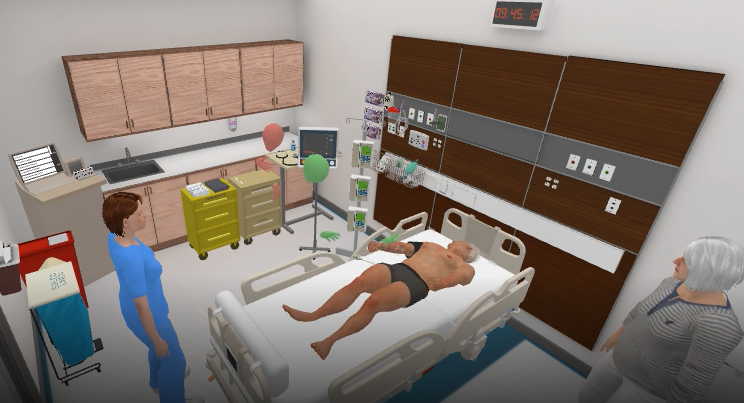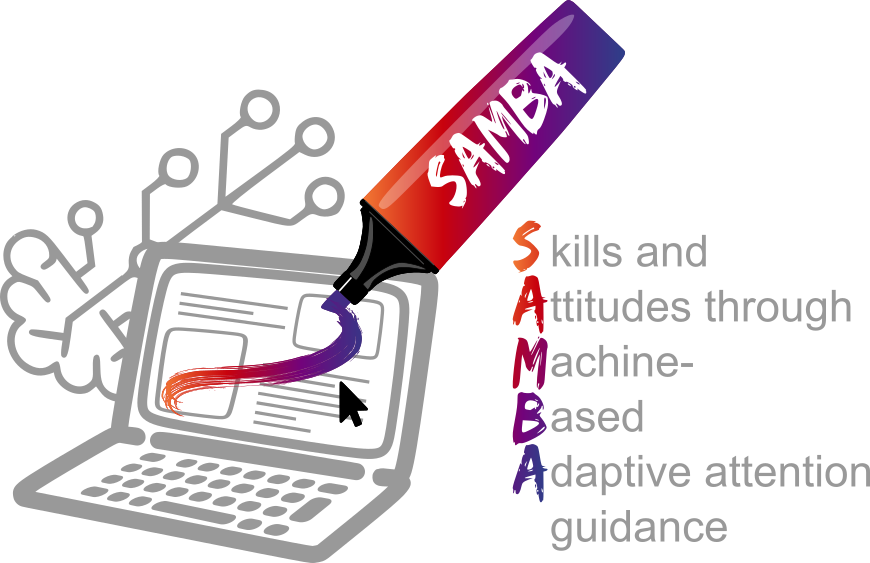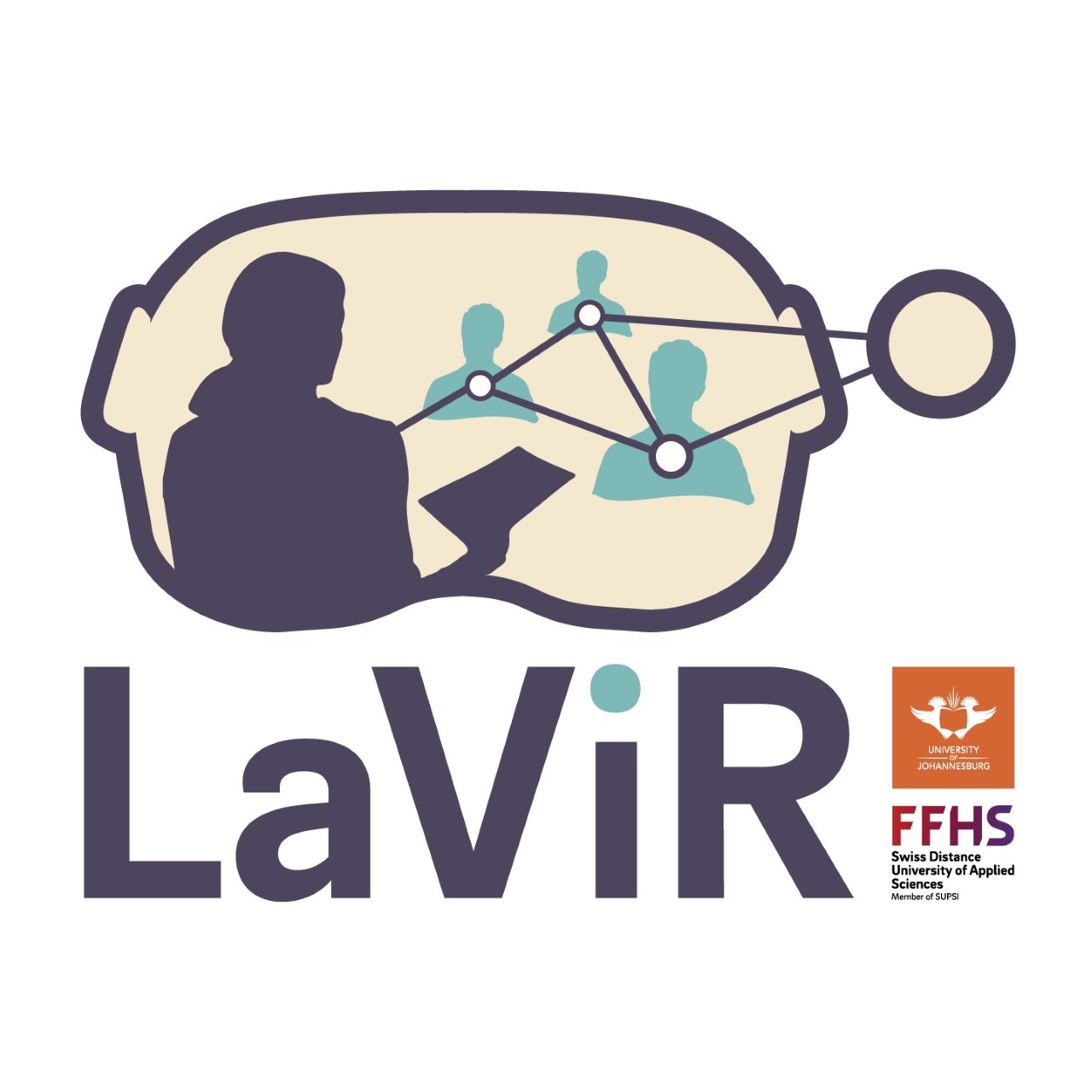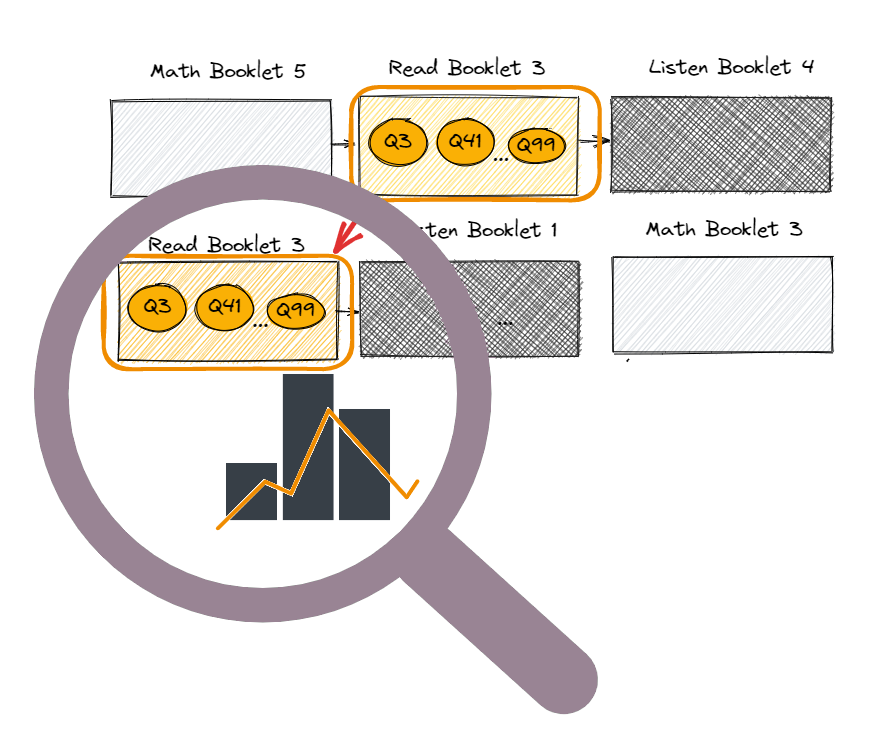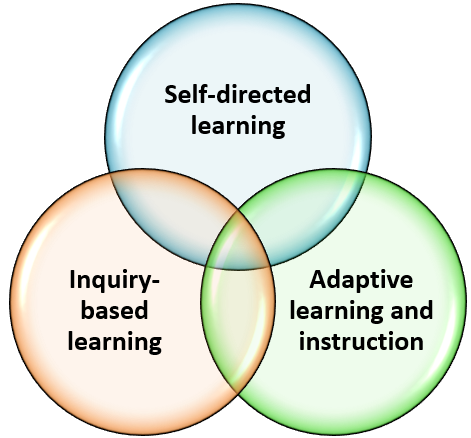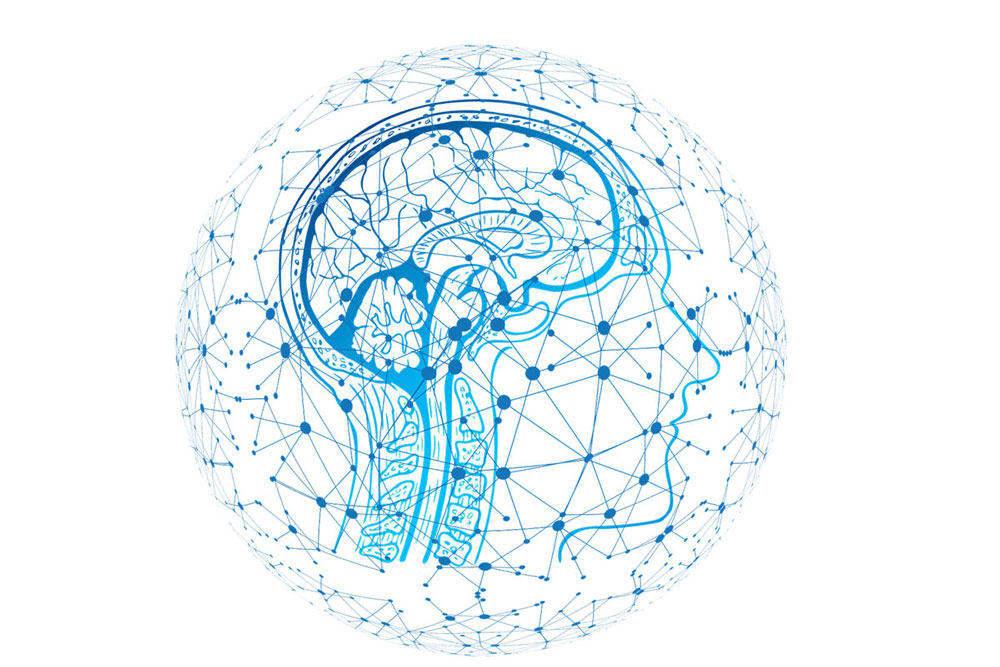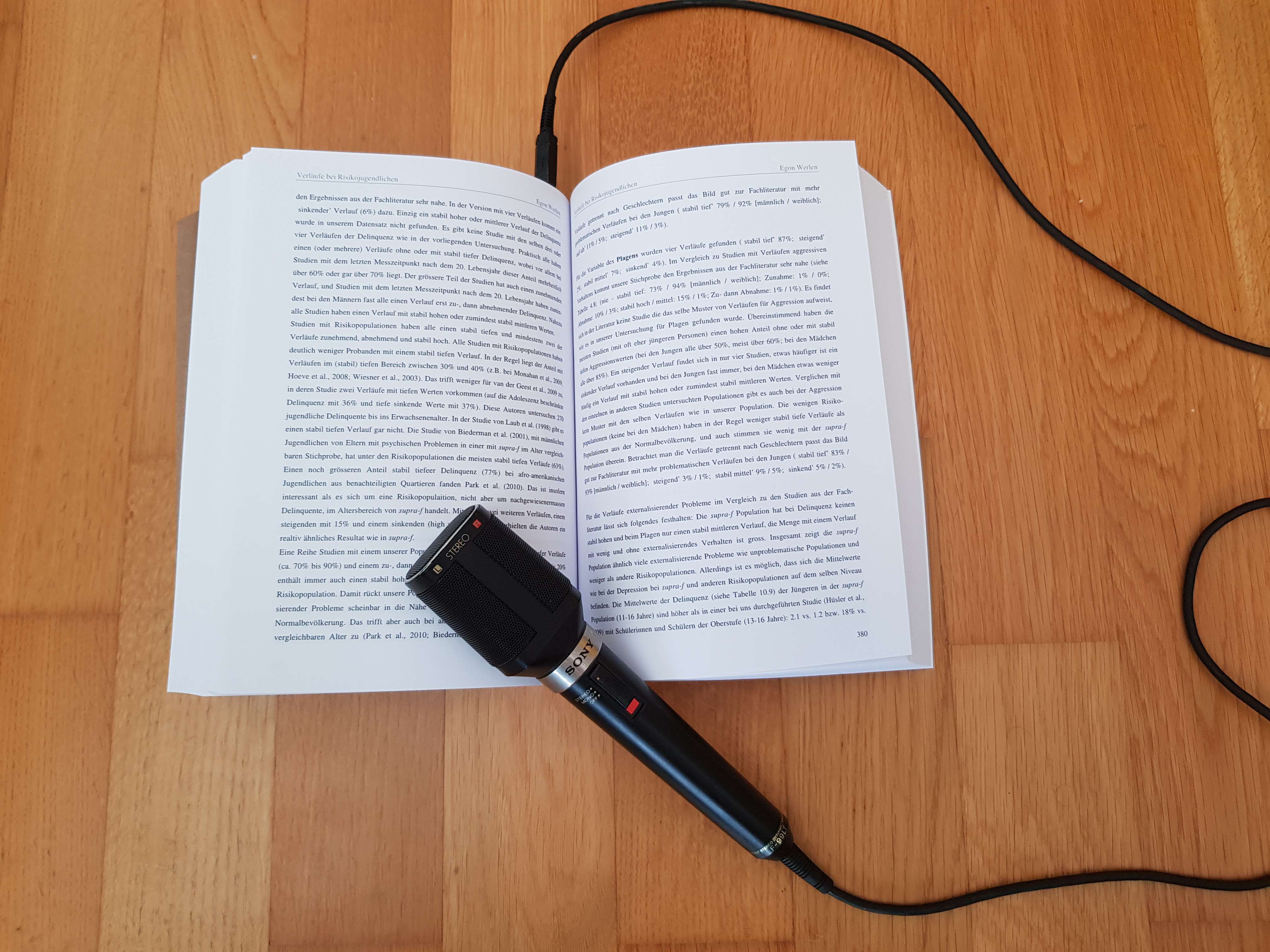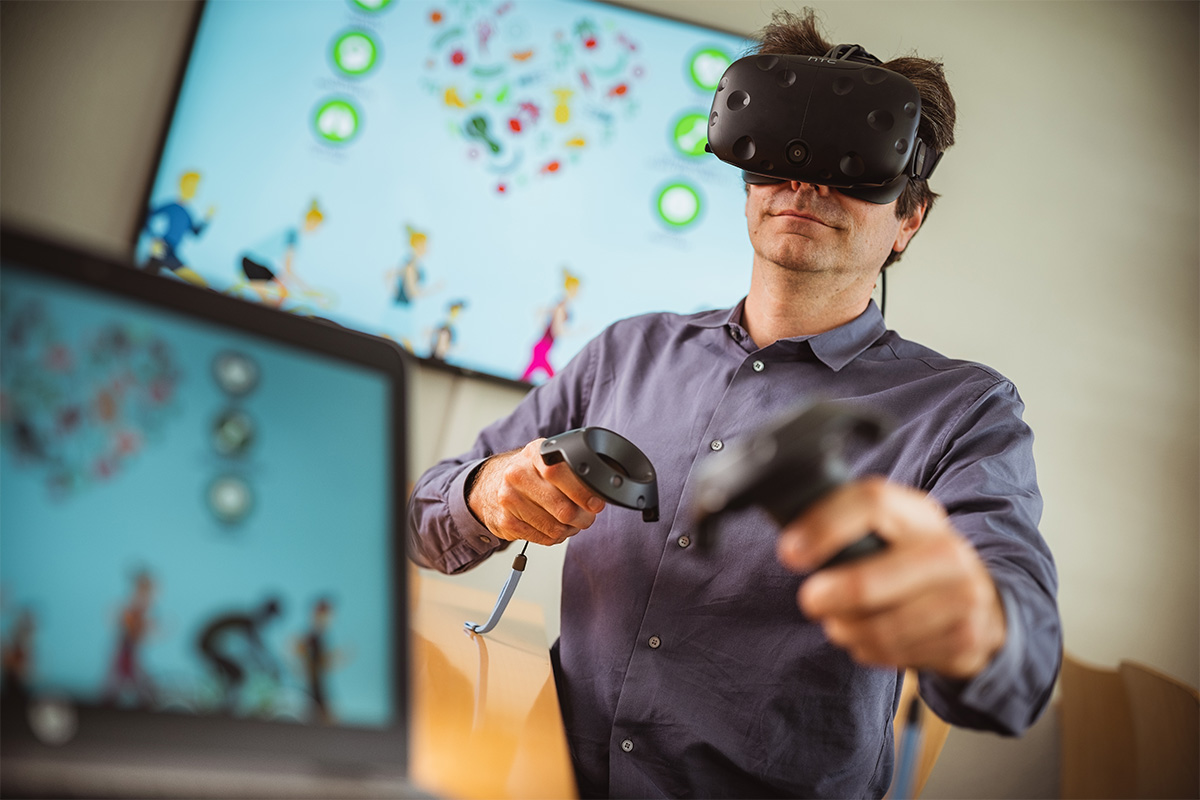IFeL projects
The Institute for Open, Distance and eLearning Research (IFeL) is active in four research areas: personalised and adaptive learning, emotions in reading and learning, VR educational approaches and learning analytics. We methodically focus on the use of design-based research, artificial intelligence and machine learning, classical statistical approaches and the use of different measurement tools, such as log-file analysis, eye tracking, face reading, and so on.
Current projects
SAFI - Software-Based Analysis and Promotion of Social Integration
Children learn better when they feel comfortable in school and sense belonging and acceptance. Social relationships, well-being, and the class climate play a central role in this context. SAFI is a collaborative project involving PH-Bern, University of Bern, Bern University of Applied Sciences funded by the BeLEARN Booster Fund.
The project's goal is to support educators in promoting these aspects and to develop a social climate monitoring system. This will enable educators to systematically capture, visualize, and make visible developments over time in aspects such as children relationships, well-being, and class climate. The aim is to help teachers create cooperative, appreciative, and secure classroom environments for children.
The FFHS is a collaborative partner in this project. The expertise of FFHS is used for usability issues and the implementation of technology-based solutions.
Contact: Dr. Sergej Wuethrich, Project leader (PH Bern), Dr. Christof Imhof, Victoria Mirata
Duration of the project: 2023 - 2024
INTEAM+: Groundwork to enhance INterprofessional TEAM trainings with virtual reality and adaptive learning
INTEAM+ is a joint collaboration of FFHS, Inselspital Bern, and Berner Fachhochschule, supported by the BeLEARN booster fund. The aim of the project is to augment a Virtual Reality (VR)-based interprofessional team communication training (result of the BeLEARN-funded project INTEAM). It explores how to combine the existing training with the benefits of learning analytics to enrich the learning feedback, which constitutes a crucial component of any training.
Specifically, INTEAM+ will lay the basis for integrating a personalized and adaptive learning system based on objective performance markers. A more nuanced learning feedback has the potential to enhance the learning outcome, facilitate debriefing, increase motivation, and guide further learning activities.
Contacts:Dr. Iaon-Sorin Comsa, Dr. Ivan Moser
Duration of the project: 2023 - 2024
SAMBA – Skills and Attitudes through Machine-Based Adaptive attention guidance
SAMBA (Skills and Attitudes through Machine-Based Adaptive Attention Guidance) is an SNSF-funded project (link: https://data.snf.ch/grants/grant/215141 ) being conducted by a Swiss-South African research group. It pursues the ambitious goal of developing the individual skills and attitudes of students in an efficient way by means of an AI learning environment with machine learning-based algorithms.
The focus is on selective guidance and enhancement of attention as well as the automatic adaptation of the learning environment to the personal needs of the students in order to optimise the self-direction of the learning processes. The innovative concept will be tested in two specific courses at three different universities.
Contacts: Prof. Per Bergamin, Dr. Ioan-Sorin Comsa
Duration of the project: 01.06.2023 - 31.05.2026
LAVIR - Learning Analytics in Virtual Reality
Funded by Unity and Meta Immersive Learning initiative, LAVIR aspires to design an innovative, immersive tool that addresses teachers' challenges employed in marginalized communities. Together with the University of Johannesburg,
LAVIR is developing and testing a VR prototype with pre-service teachers (PSTs) in South Africa. The tool will allow future teachers to have an authentic teaching experience in a safe environment with enhanced reflection powered by Learning Analytics.
Contact:
Dr. Martin Hlosta
Dr. Ivan Moser
Duration of the project: 2023 - 2025
PANDA - Pattern ANalysis of Digital-based Assessments in Switzerland
PANDA is a BeLearn Booster project of FFHS, UniBern and PHBern. It investigates student usage patterns in digital-based assessments (DBAs) to improve understanding of assessment development and administration in schools.
By analysing process data from the Überprüfung der Grundkompetenzen (Assessments of Basic Skills, UGK) for second graders, the project aims to discover usage patterns in solving items across different school languages. This research will inform assessment developers, practitioners, researchers, and policymakers on how to better develop and administer UGK assessments. Insights from the trial data can also guide the development of future studies.
Contact:
Dr. Martin Hlosta
Dr. Sukanya Nath
Duration of the project: 2023
Learning in Adaptive, Self-directed, Scaffolded and Inquiry-based Environments (LASSIE)
Inquiry-based learning has been proven to be a successful teaching strategy. Students are motivated to generate their own answers from their research.
The project aims to develop an adaptive questioning and scaffolding system to promote self-directed learning. This type of adaptive learning aims to empower students to pose their own research questions and take responsibility for their own learning.
Collaboration with Dr. Donnavan Kruger from the NWU of South Africa.
Contact: Dr. Egon Werlen, Dr. Donnavan Kruger (NWU)
Duration of the project: 2020 – 2022
ALMoo-KI: Adaptive Learning with Moodle – Artificially Intelligent!
Based on our experience with the development and design of rule-based adaptive instructions, we aim to provide students with automatic and individually tailored (adaptive) feedback based on artificial intelligence technology.
For this purpose, a neural network from the company Taskbase is trained with tasks from two FFHS modules (Finance and Accounting, and Introduction to Health Psychology). The effects of the feedback on learning performance and learning behaviour are investigated.
Contact: Prof. Dr. Per Bergamin
Duration of the project: 2019 – 2023
AIDA: Analysis and Intervention in the Context of a Dropout Alerts
Academic failure can be prevented if the potential dropouts of course quizzes in online and adaptive learning could be detected as early as possible.
In the AIDA project, we employ machine learning to predict quiz dropout during the semester for students taking adaptive courses at the FFHS. To train the algorithm, log files of students interacting with the FFHS learning management system are collected over more than ten semesters. The trained algorithm will make accurate predictions and timely fine-grained alerts to prevent students from dropping out.
Contact: Dr. Behnam Parsaeifard, Dr. Ioan-Sorin Comsa
Duration of the project: 2019 – 2023
LEA – Learning Environments for Analytics
Learning environments generate a lot of data that can be used for the analysis of teaching and learning behaviour and the support of learners and teachers.
LEA is a pseudo-learning management system developed at the IFeL to implement advanced analysis functions using additional sensors with the help of machine learning algorithms and to use them for experimental and field investigations. The aim is to use LEA together with existing LMSs to obtain very accurate and precise data on teaching and learning behaviours.
Contact: Dr. Tansu Pancar, Prof. Dr. Per Bergamin
Duration of the project: 2022 – 2024
SpeeTex – Speech to Text
In SpeeTex, we are investigating the usability, acceptance and advantages and disadvantages of tasks with spoken answers, especially for open questions. Furthermore, we want to know for which students spoken answers are advantageous.
In addition, we analyse emotional and cognitive states in the (spoken) answers. With the findings, we can improve and develop tasks that promote student learning.
We are working together with the Valais-based company recapp IT AG in Visp
Contact: Dr. Egon Werlen
Duration of the project: 2020 – 2023
Delphi Studies on the Future of Technology-Based Learning at the OUT
The OUT Delphi study aims to identify the critical factors needed for the successful implementation of technology-based learning at the Open University of Tanzania (OUT).
It also provides first insights into the potential of adaptive learning at OUT in the future. Practical recommendations will be developed to help policymakers and university managers to exploit the potential of technology-based learning in distance education. The study is funded by the UNESCO Chair PADE.
Contact: Victoria Mirata, Ernest Godson (OUT)
Duration of the project: 2020 – 2022
ProcraSSS (Procrastination, Self-directed Learning and Self-efficacy in Sports)
This project is centred on the prediction of dilatory behaviour in online studies, be it positive or negative.
The negative form is known as procrastination and manifests as the irrational delaying of tasks. Positive dilatory behaviour is a deliberate planning strategy for learning. In a preliminary study, we investigated whether such predictions could be made based on a mixture of factors. The results show that models with objective factors outperform subjective ones, which highlights the importance of log data in detecting dilatory tendencies.
Contact: Christof Imhof, Prof. Dr. Per Bergamin
Duration of the project: 2019 – 2023
Datawarehouse
The data warehouse project will create a platform, connecting all the data sources relevant to student learning in one storage.
The objective of the project is to enable faster iterations for researchers who want to access data in a meaningful way and, as such, speed up the research pipeline. Moreover, the project will showcase the possibilities of the platform on a selected case study analysing the existing FFHS courses.
Contact: Dr. Martin Hlosta, Prof. Dr. Per Bergamin
Duration of the project: 2021 – 2022
CoLoR VR
Recent research has produced mixed results regarding the effectiveness of learning in virtual reality (VR).
If not designed properly, the rich, multisensory input of VR applications may induce cognitive overload that impedes the learning process. Therefore, it is crucial to gather robust measures of the cognitive load to optimise the instructional design for each student. In project CoLoR VR, we investigate whether motion-tracking data of VR headsets could serve as a convenient, unobtrusive alternative to cognitive load questionnaires.
Contact: Dr. Ivan Moser
Duration of the project: 2021 – 2024
P8 – DigiBasics: Basic Digital Competencies for Students in a Digital Society
In a cooperative project of pedagogical universities PHGR, PHSH, PHTG, PHZH, SUPSI and the University of Teacher Education in Special Needs, an online learning offer is being developed to promote basic digital competencies of students.
The FFHS is leading the development of a self-reflection tool that measures learners' prior experience and interest towards digital competencies and makes personalised recommendations about learning modules. The project is funded by the swissuniversities funding programme «P-8 Strengthening Digital Skills in Teaching».
The first phase of the P-8 Strengthening Digital Skills Program - Phase 1 (2019-2021) is now completed.
Contact: Victoria Mirata
Duration of the project: 2021 – 2024
Ambiente in Ascolto (AmAs)
In the project Ambiente in Ascolto (AmAs) – the environment in the ear – SUPSI, together with the IFeL or UNESCO Chair, is developing an adaptive course for teacher candidates and teachers in Switzerland and Brazil (University of Caxias do Sul).
The course is offered in a blended learning approach, online and face to face, and includes adaptive assignments.
At IFel, the adaptive instructional design will be created, and the course evaluated based on a design-based research approach. The project is supported by Movetia.
Contact: FFHS: Dr. Egon Werlen / SUPSI: Prof. Dr. Lorena Rocca
Duration of the project: 2019 – 2022 (August)


